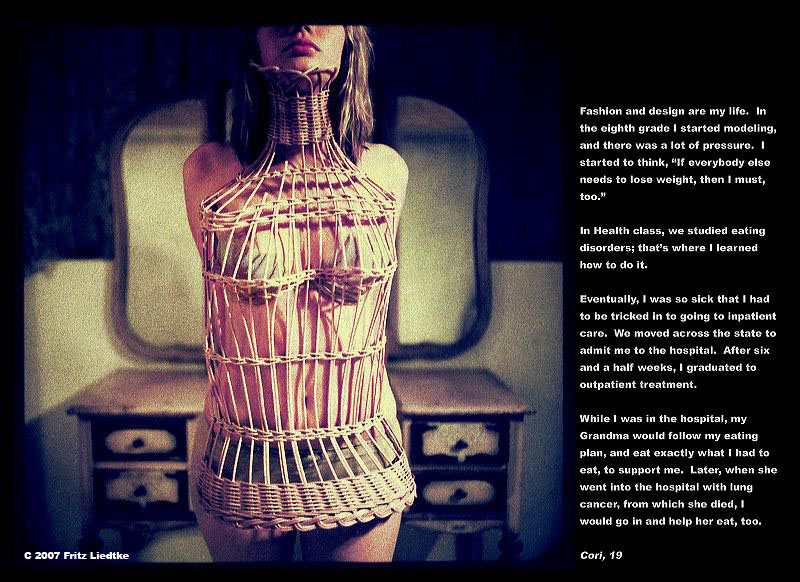 I wrote some time back about stick-thin models and the pressures upon them to conform to a morbidly unhealthy body ideal. But it is not only models and not only women who fall victim to the distorted thinking that leads to eating disorders and other forms of self-mutilation. Photographer Fritz Liedtke experienced it to a degree as a young man and has now mounted an exhibit, Skeleton in the Closet, dealing with the issue through photos and accompanying text.
I wrote some time back about stick-thin models and the pressures upon them to conform to a morbidly unhealthy body ideal. But it is not only models and not only women who fall victim to the distorted thinking that leads to eating disorders and other forms of self-mutilation. Photographer Fritz Liedtke experienced it to a degree as a young man and has now mounted an exhibit, Skeleton in the Closet, dealing with the issue through photos and accompanying text.From Jeffrey Overstreet's interview with Liedtke:
One of the surprising things about people struggling with eating disorders is that, often times, they believe so thoroughly in what they are telling themselves (that I’m fat, ugly, unworthy of love, need drugs to keep going), that nothing you can say will help them. They won’t hear you. I’ve sat face to face with these beautiful people who were headed for death, and could do little more than listen. Of course, my role as an artist and photojournalist was to listen and tell their story, not be their counselor. But the depth to which we are able, as humans, to deceive ourselves, is quite surprising sometimes.
Another thing I found interesting in the interview process was how much people would share with me. I would sit there and ask questions and listen, and people would start telling me things that they hadn’t told anyone else, not even their spouses. I felt like a priest in a confessional. Obviously, they wanted to get things off their chest (with some encouragement from me), and I was honored to be able to listen.
Even a small sampling of the pictures had me fighting tears. They are eloquent and disturbing.
You can find Jeffrey Overstreet's complete interview with Liedtke at The Eagle and Child.
Technorati tags: Anorexia, Bulimia, Eating disorders, Fritz Liedtke









